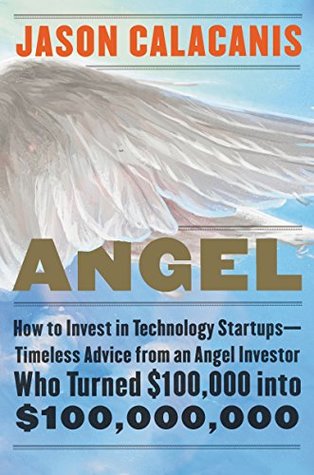More on this book
Community
Kindle Notes & Highlights
Read between
November 28 - November 29, 2019
The world has changed more in the last ten years than it did in the last ten decades.
Life is short, you should spend your time working with the good people, and if you do get screwed, look at it as a small price to pay for getting that person out of your life.
You can make your own luck in this life by putting yourself next to the people who are already winning.
As an angel investor, you are going to need to invest in fifty startups (diversification!) in Silicon Valley (location!) over three years in order to have a chance at an outsize return. That’s one to two startups a month.
If you love taking risks and don’t mind being locked up for a decade, I could see you putting 10 to 20 percent of your bankroll into angel investing. If you can tolerate risk, but don’t love it, and you can handle being illiquid for a decade, I could see you putting 5 percent of your bankroll into angel investing.
Meet Twelve Angels The best deals are typically not on platforms like AngelList or at incubators like Y Combinator or 500 Startups. The best deals never see the light of day. They’re quickly filled by insiders who are sharing deal flow, and by elite founders with killer startups tapping their existing network.
the best way to deal with stupid people is not to have them anywhere near your company and, if possible, not even in your life!
Important people have the ability to turn off their phones because the world can wait for them. People who are not important have to react to their phones and be at the mercy of people pinging them.
As one rich person I know said, “Want to know how to make a billion dollars making movies? Start with ten billion dollars.” Another Hollywood insider told me that the only reason for rich people to invest in movies is to go to cool parties.
The number one reason a startup shuts down is not actually running out of money, which is what most people believe. The number one reason a startup fails is that the founder gives up.
If you’re constantly learning and working hard—two things that are in your control—good things will happen.
You could make a Twitter clone and get to a thousand users in two weeks and build the chat software Slack in half that time. Starting these projects is now thousands of dollars and a couple of weeks, but getting them to a meaningful exit is millions of dollars and many more years.
“Great companies are bought, not sold”
Google was an M&A grandmaster for the better part of a decade, with most of their success outside of their search engine and Gmail coming from writing checks. They bought their mobile operating system Android in 2005, YouTube in 2006, DoubleClick in 2007, and the pay-per-click contextual ad platform Applied Semantics in 2003.
“What problem do you solve?” is a classic venture capitalist question that is sometimes phrased as “Is your startup a vitamin or a painkiller?” or “What pain do you remove?”
There is a simple tool for figuring out how delightful a startup’s product is. It’s called NPS and it stands for Net
Promoter Score. You’ve probably taken an NPS survey before. An NPS measures the willingness of customers to recommend a company’s products or services to others. Smart founders use the feedback from NPS surveys to improve their services and maximize their growth.
Angel investing, as we’ve learned, is a unique vocation, because if you’re qualified to be an angel, you are overqualified to be a venture capitalist, and venture capitalists have a much easier and more financially rewarding life.
Life is random, but luck isn’t. Lucky people surround themselves with the most successful people in the world and take chances. It isn’t hard or impossible. It just takes work.


